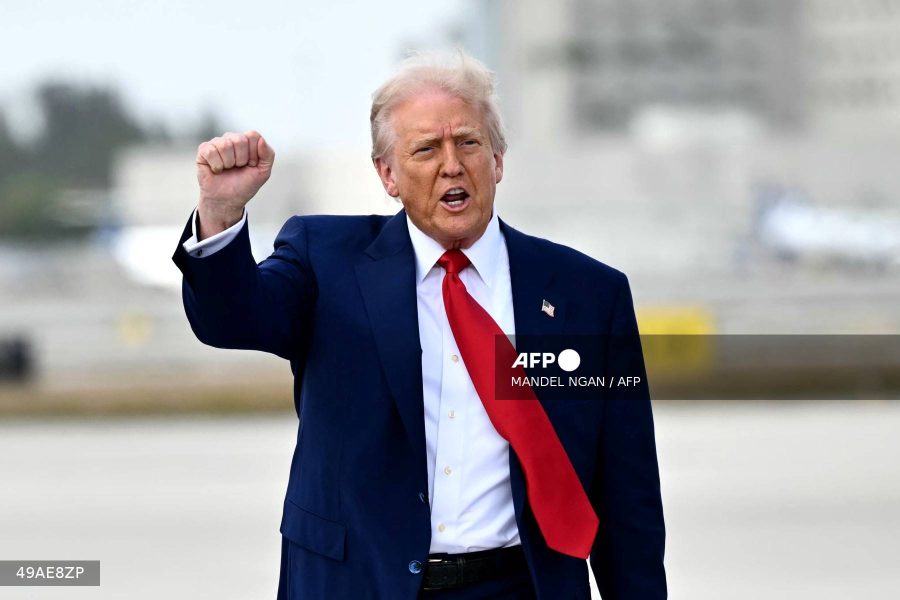US President Donald Trump signed an executive order Wednesday imposing travel restrictions on nationals from 19 countries, citing national security concerns and inadequate vetting procedures.
The targeted countries are, for the most part, either among the poorest nations in Africa, Muslim-majority countries, or lefist-run nations like Venezuela — frequent targets of the Trump administration’s harshest immigration policies.
Trump said the measure was prompted by a makeshift flamethrower attack on a Jewish protest in Colorado that US authorities blamed on an Egyptian man they said was in the country illegally. Egypt is not on the list of afected countries.
The restrictions take effect June 9.
Under the order, twelve countries have received total bans on immigrant and non-immigrant entry: Afghanistan, Myanmar, Republic of Congo (also known as Congo-Brazzaville), Equatorial Guinea, Eritrea, Haiti, Iran, Libya, Somalia, Sudan, and Yemen.
Reasons cited vary from the prevalence of immigrants overstaying their visas to sheltering terrorists. Some countries are cited for refusing to accept deportees from the US.
Seven countries face partial bans that suspend immigrant visas and tourist and student nonimmigrant visas, with reduced access for other visa types: Burundi, Cuba, Laos, Sierra Leone, Togo, Turkmenistan, and Venezuela.
Key exemptions
US permanent residents and green card holders are exempted from the restrictions, as are dual nationals traveling on non-restricted countr passports.
The order also allows entry for those with immediate family immigrant visas who provide “clear and convincing evidence of identity and family relationship (e.g., DNA).”

With international sporting events coming to the US in the next few years, including the FIFA World Cup in 2026, athletes for major sporting events are also allowed entry. Afghans who worked as translators, interpreters, or in other capacities alongside US troops are exempted, as are Iranian religious or ethnic minorities facing persecution.
Chaos averted?
The Trump administration appears to be trying to avoid much of the chaos that followed the travel bans during Trump’s first term, which faced significant legal pushback and were rewritten several times before being upheld by the Supreme Court.
Those bans, implemented following terrorist attacks in Europe and elsewhere, were originally framed as targeting “seven majority-Muslim countries” and frequently labeled a “Muslim ban” by Trump and his aides.
The order at the time immediately caused political uproar and airport chaos, with green card holders and relatives of US citizens uncertain whether they fell under its scope.
This time, the administration is providing more advance notice before the ban takes efect and says it is based on formal review by State Department, Homeland Security, and intelligence officials. (AFP)
![]()











